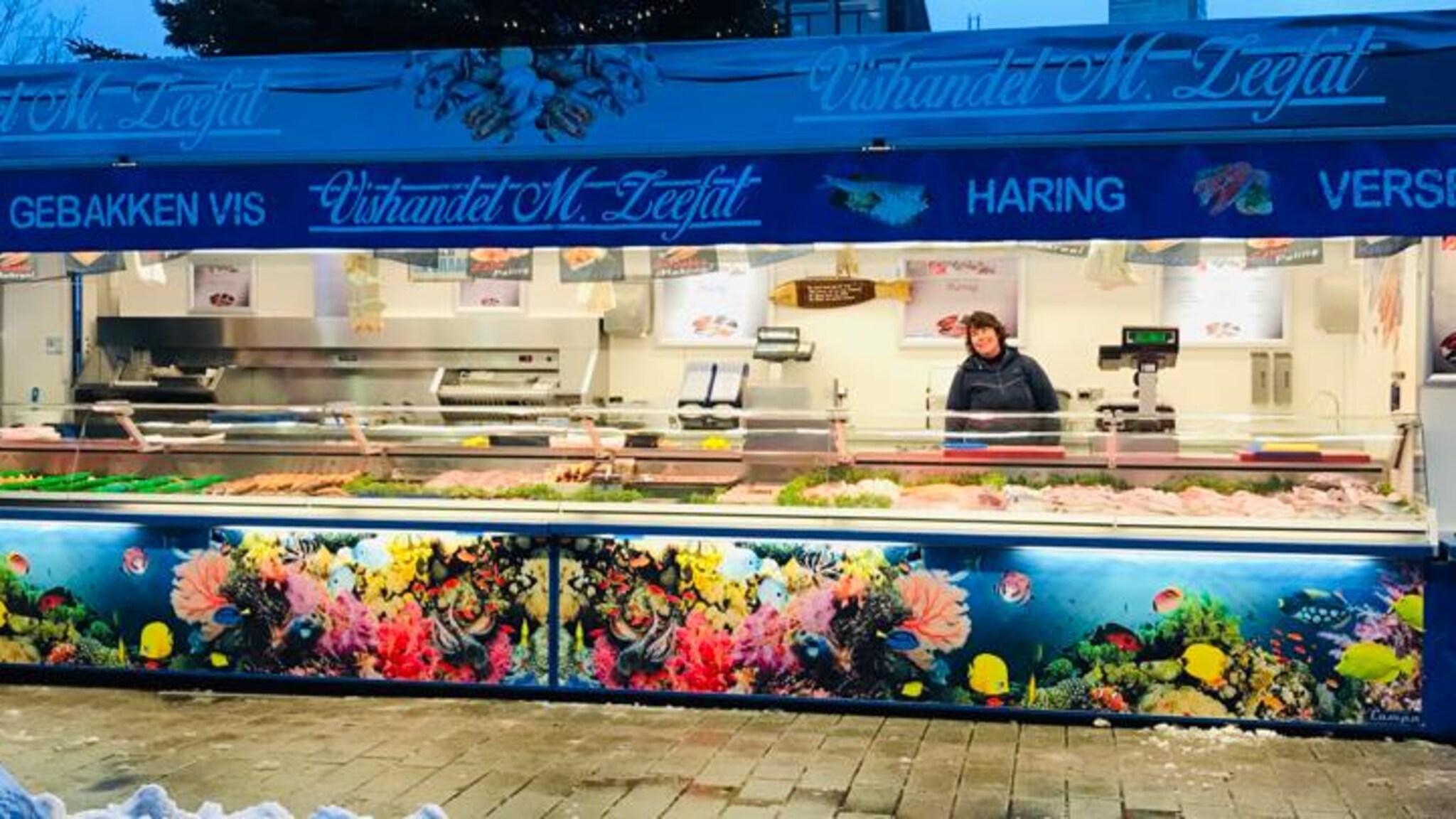The number of fish shops and fish stalls has remained quite stable since 2017. For example, on January 1, 2022, a herring or kipling sandwich can be purchased at 855 places in the Netherlands, according to the latest figures from the Chamber of Commerce (KvK).
The folks at Doetinchem can connect to the Zefat family, among others. This family has owned a fish stall in the market since 1964, and last June Shivan Khalaf and Miranda Zivat opened a fish shop just outside the center. But even though people managed to find their way into the store, the couple decided to close the doors at the beginning of this month.
Higher energy prices, increased purchase cost
The fate that also befell the fish shop De VisBaas in Doetinchem a little earlier. The Chamber of Commerce cannot yet say how many fish shops and fish stalls have closed this year.
Shivan Khalaf sighs, “The rise in energy prices and the increase in the cost of purchases made everything too expensive.” “When we started, we paid a few hundred euros of energy in the store. That tripled to 1,000 euros in September and it would have been more.”
To keep the store open, prices have to go up sharply. “Customers would then have to pay nine euros for two ounces of Kipling, twice as much now. We didn’t want that,” explains Behind the option to close the store.
‘This is not going well’
Keuning expects from the trade union that more fish stores and fish stalls will follow in the footsteps of Shivan Khalaf and Miranda Zivat. “About 30 percent now have a fixed energy contract, but by the end of 2023 this will still apply to less than one in ten stores. And because rents are tied to inflation figures, we don’t rule out rents increasing by 7 to 8 percent.”
Keuning also notes that the minimum wage will rise in January. “As a result, higher metrics will also gain more. Add to that more expensive flour and cooking oil due to the war in Ukraine and it’s clear. It’s not going well.”
Dennis Beckers of Hoekmans Vis has had his own fish stall in Borculo and elsewhere in Achterhoek for decades. Keuning’s lyrics supported. “It’s very difficult now. For me, energy prices have gone up five times. It’s going really fast.”
Freezer is off
The Bakers took a number of drastic measures. “We’ve closed our freezer, and no longer sell frozen produce. Fish fries, shrimp croquettes, and calamari are all gone.”
This has been replaced by meal and restaurant products, where fish is the most expensive ingredient, but which also contain vegetables, for example. “There’s a little bit more margin on this one, and that offers more possibilities,” Beckers explains.
In addition, he had to raise the prices of his remaining fixed fish supply by twenty-five percent. “Two hundred grams of kipling first cost €3.90, now €5. A herring sandwich has gone from €3.50 to €3.75,” Beckers says.
Rising prices
After the fish shop closed, the Zeefat family again focused on fish stalls in Doetinchem, Hengelo (O) and Germany. They also took action.
“Buying is expensive, so we’re offering less fresh fish. We’re now focusing on herring, fried fish, kipling, and steamed products like mackerel,” says Khalaf, who has raised prices, like Bakers of Hokmans Face.
“A herring sandwich is 50 cents more expensive and now costs three euros. Two hundred grams of kipling now costs 4.50 euros instead of 4 euros. This includes the sauce.”
bankruptcy wave
Both Khalaf and Bakers fear raising prices again for fear of alienating consumers. Beckers are strict in their purchases and sales. “By keeping track of all sales, I can accurately buy up to four kilograms a week. Ninety percent of my sales go to regular customers. And now I know exactly what I’m selling.”
Personally, Bakers think the low point has been reached. But VNV’s Keuning doesn’t assume that. “A wave of bankruptcy is coming; many fishmongers will not be able to make it.”
Read also:

“Lifelong zombie fanatic. Hardcore web practitioner. Thinker. Music expert. Unapologetic pop culture scholar.”








